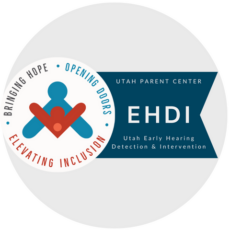
School Readiness for Students Who are Deaf or Hard-of-Hearing
Are you getting your deaf or hard-of-hearing child ready to start school?
Here are some great resources we’ve rounded up to help your child have a successful start to the new school year:
Transition to Preschool
What is the transition to preschool like when your DHH child turns 3 years old and is no longer eligible for Early Intervention? How do you make that transition as smooth as possible? Click HERE to learn more.
A New School Year: All About Me
How do you best start off a new school year? We recommend providing your child’s teacher with some get-to-know-you introduction information before school starts. Click HERE to get some samples and learn more.
Peers and Fostering Friendships
What can I do to support peer inclusion for my Deaf or Hard of Hearing Child at school? If my child uses American Sign Language, are there extra things I can do to support peer inclusion? Click HERE to learn more.
IDEA
The Individuals with Disabilities Education Act (IDEA) is a law that makes available a free appropriate public education to eligible children with disabilities throughout the nation and ensures special education and related services to those children. Click HERE to learn more.
Individualized Education Program (IEP)
An Individualized Education Program (IEP) is an educational program designed to meet a child’s individual needs. It includes goals and the educational placement and services the student will receive. Every child who receives special education services must have an IEP. Click HERE to learn more.
Section 504 Plan
Section 504 of the Rehabilitation Act of 1973 was developed to ensure that a child who has a disability identified under the law receives needed accommodations. A 504 Plan helps to ensure a student’s academic success and equal access to the learning environment. Click HERE to learn more.
Optimizing Outcomes Guide
The ultimate reference for DHH parents to help understand their child’s rights is the National Association of State Directors of Special Education (NASDSE) Guide for Optimizing Outcomes for Students That Are Deaf or Hard of Hearing. Click HERE to learn more.
Interpreters in the Classroom
Qualified educational interpreters are a critical part of the educational day for children who are deaf or hard of hearing and use American Sign Language. What questions do you have about the legal requirements, roles and duties of the educational interpreter? Click HERE to learn more.
Accommodations Checklist
Accommodations are changes and supports provided to enable equal access to the same school work and education as other students. They may include changes to the classroom environment, presentation of instruction, and assessments to provide full access. Click HERE to learn more.






